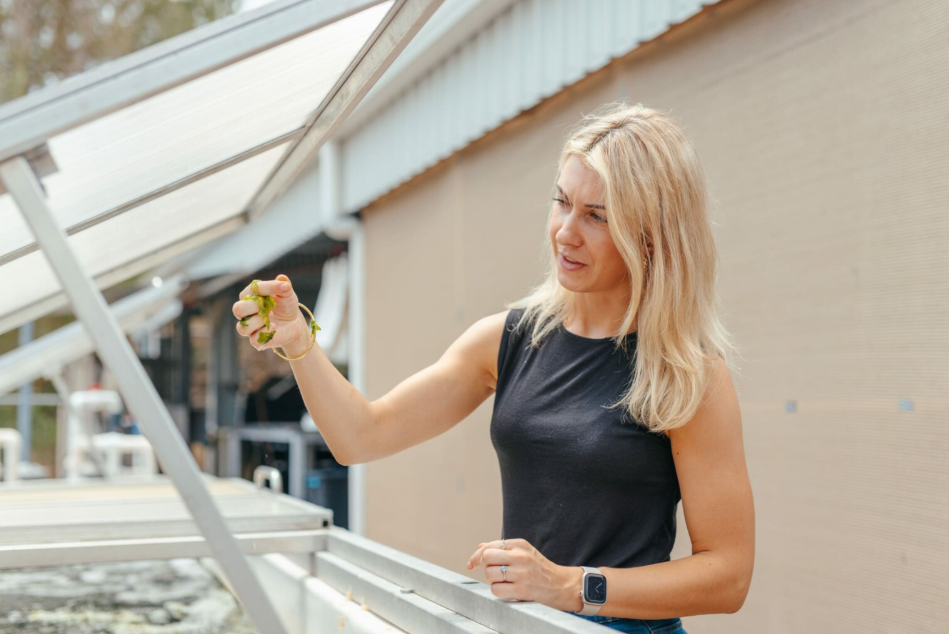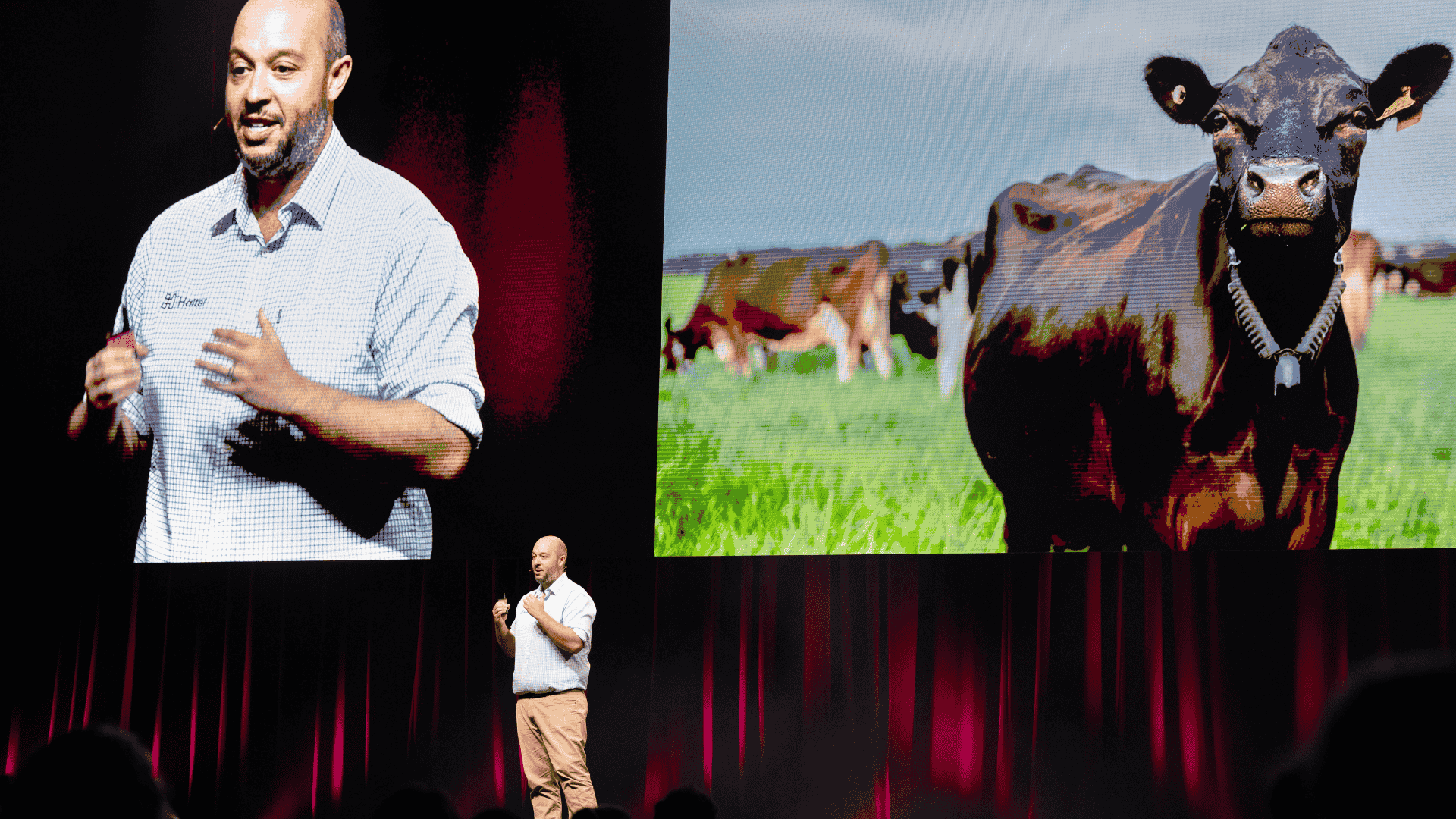Virtual fencing gets green light at ag tech event
Virtual fencing has been given the green light in Victoria, with Halter’s P5 electronic collar system on Wednesday becoming the first technology...

Queensland-based aquaculture research scientist Dr Alisa Mihaila is pioneering efforts to establish a sustainable Asparagopsis seaweed industry in Australia as a solution for reducing agricultural methane emissions.
As one of the evokeAG 2025 Groundbreakers, Dr Mihaila is proving that the future of agriculture is not only rooted in the land but also in the sea, unlocking new opportunities for sustainability and climate resilience.
Having grown up on the Kapiti Coast in New Zealand, Dr Mihaila now resides in Townsville, Queensland. With a PhD in Biological Sciences and a background in Marine Biology and Ecology, she is focused on advancing the cultivation of Asparagopsis, a seaweed species scientifically proven to reduce methane emissions in livestock.
Through her research at James Cook University, she is working to develop the scientific foundation necessary for the industry's growth, collaborating with the Australian Sustainable Seaweed Alliance (ASSA) as part of an FRDC government-funded project.
"My current research focus is specifically on cultivating and developing the Asparagopsis industry as a solution for reducing agricultural methane emissions", Dr Mihaila said.
While her current research is centred on developing the Asparagopsis industry, she also advocates for the broader application of seaweed in alternative protein production, nutrient and waste management, and other emerging areas.
Dr Mihaila said securing funding and developing projects to expand research into these applications was a key aspect of her work.
Beyond its environmental benefits, the development of the seaweed industry presents an economic opportunity for rural and coastal communities.
Dr Mihaila is committed to bridging the gap between aquaculture and traditional agriculture by collaborating with farmers, industry leaders, and policymakers to create a viable and scalable seaweed sector.
Dr Mihaila highlighted some of the key challenges the industry faces, including the need for skilled expertise and funding to support large-scale cultivation.
"Seaweed aquaculture has the potential to tackle some of the most pressing challenges we face today, such as climate change, nutrient pollution, and food security," she said.
"It also creates job opportunities in coastal areas, connecting rural communities to larger markets as global demand rises."
Coastal and rural communities stand to gain from seaweed farming as a sustainable, low-impact agricultural enterprise that complements existing industries such as crop production and livestock farming.
However, despite Australia's vast marine resources, the country has yet to fully capitalise on the economic and environmental benefits of large-scale seaweed farming.
"One of the biggest hurdles for industry growth is the lack of cultivation skills and knowledge required for scaling up to commercial production," Dr Mihaila said.
Her research, in collaboration with ASSA, aims to bridge this gap by providing practical farming solutions through scientific innovation and industry development.
"The industry is already huge overseas," she said. "Production largely occurs in Asia, and it's generating billions of dollars. Australia is at the point where we should take the opportunity to make this happen here."
As an evokeAG Groundbreaker, Dr Mihaila is at the forefront of developing a sustainable and science-backed seaweed industry in Australia. She believes that with the right investment, research, and collaboration, seaweed cultivation—with Asparagopsis—can play a critical role in reducing agriculture’s environmental footprint.
"In Australia, we have both the infrastructure and the expertise to grow it. We just need to do the research, build collaborations, and get government support to expand the industry," she said.
Looking ahead, she is hopeful that ongoing research and advocacy will inspire more businesses to recognise seaweed's potential and integrate it into their operations, ensuring long-term environmental and economic benefits.

Virtual fencing has been given the green light in Victoria, with Halter’s P5 electronic collar system on Wednesday becoming the first technology...
.png)
What if the real issue with “kids not stepping up” isn’t them at all?In this episode, Ben Law sits down again with high-performance advisor Chris...
.png)
As Victorians begin the long recovery following devastating bushfires which burnt more than 400,000 hectares, a pair of contract...